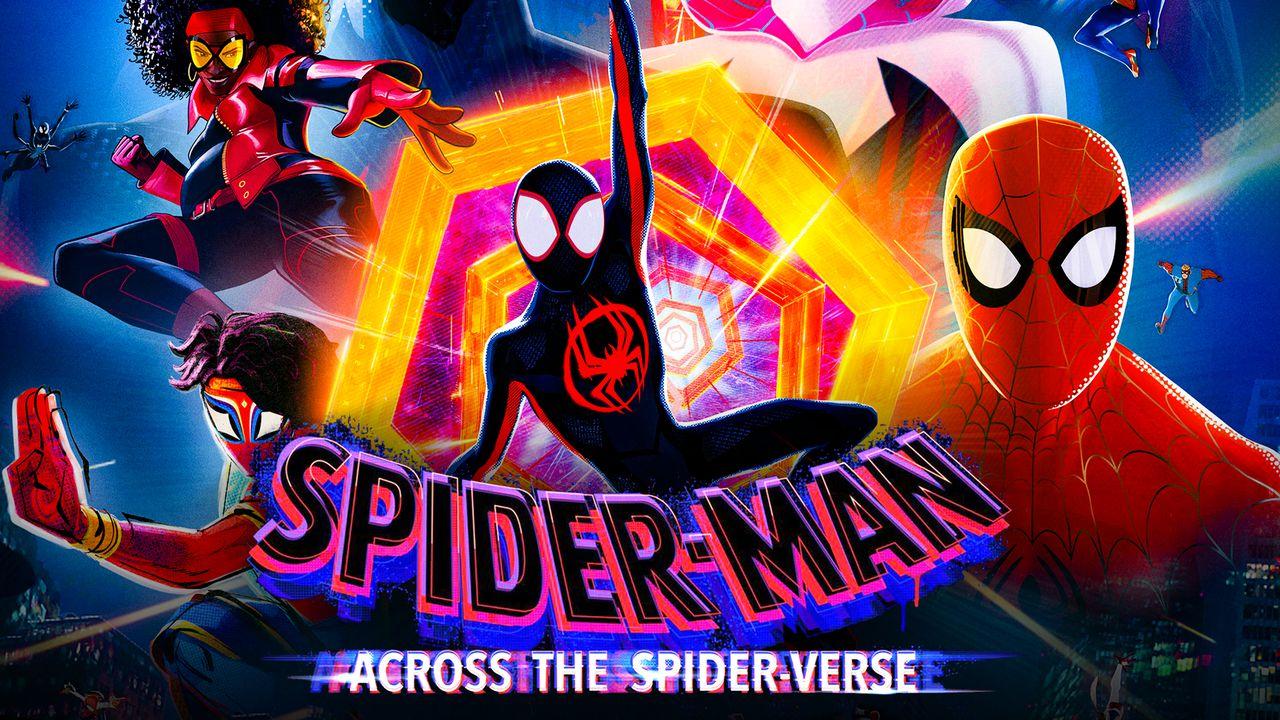
Sony Pictures' Across the Spider-Verse is a fantastic film, but it isn’t flawless.
The original 2018 animated Spider-Man movie blew away both audiences and critics alike. Not only that, but it set impossibly high expectations for what whatever came next.
Thankfully, in a lot of ways, the long-awaited sequel lives up to the legacy of its predecessor.
The Animation Continues To Amaze

Into the Spider-Verse revolutionized animation when it came out and was a breath of fresh air for many. Across takes that and dials it up to 11, this time around offering not just one ground-breaking animation style but a whole host of them.
The story takes audiences through several different universes, each with its own distinctive look and animation style. Of course, this carries over to any characters who come from them as well, such as the hyper-stylized Scarlet Spider.
To say it’s a beautiful film is an understatement. It’s hard to imagine how Sony Pictures plans on topping it on an artistic level for Beyond the Spider-Verse, but it has certainly proved it shouldn’t be underestimated when it comes to this franchise.
Reuniting With Miles Morales & Gwen Stacy

Continuing the narrative threads from the first installment, Miles Morales remains the leader of the franchise. Don’t let the dozens of new Spider-People convince you otherwise—he’s still clearly the heart of the story.
Shameik Moore continues to be the quintessential Miles, and it almost feels like audiences never left him in the first place.
By the time the sequel picks up, Miles has been the one and only Spider-Man for just over a year. But he’s missing his old Spider pals.
So he’s pretty happy when Gwen Stacy pays him a surprise visit, one that takes him to some unexpected places.
While Miles Morales remains the leader of the film, Hailee Steinfeld’s Gwen Stacy gets to share that spotlight with him. Her character gets a lot of fantastic story work, bringing the story into her universe for some of the movie’s runtime.
This is one of the many examples where the animators get to showcase their artistic wizardry as they recreate the vivid watercolor, neon-lit cityscape from the Spider-Gwen source material. Every frame is like a painting, one ripped right out of the comics—it’s truly dazzling.
The friendship subtly built between Gwen and Miles in the first movie is central to the emotional webs interwoven throughout the story of Across the Spider-Verse. The slower approach to building their friendship pays off.
Returning & New Spider-Faces

Alongside the leading Spider-Duo, there are plenty of returning faces.
The supporting cast for Miles Morales’ world continues to be fantastic, with this movie going the extra distance to flesh out his family’s dynamic. Gwen’s complicated relationship with her father also gets some screen time, providing a fascinating parallel with what Miles himself is also going through.
Then there’s the return of Peter B. Parker, with Jake Johnson being just as charming and loveable the second time around—but this time with a child in tow.
While there are plenty of familiar faces, there are dozens and dozens of additional Spider-Variants this time around. Every single new Spidey is great, and each sport their own animation stylings to go with them and their worlds (for those that get glimpsed).
However, as one might expect, with the high number of new characters, not many get much time to shine. This leaves one wanting far more of the likes of Scarlet Spider, Spider-Byte, or Pavitr Prabhakar after their fleeting moments on screen.
Some newbies get more focus, however. Key among them is Oscar Isaac’s Miguel O’Hara, who's the hard-edged, humorless Spidey with the weight of the Multiverse on his shoulders.
Then there’s Spider-Punk, who plays an instrumental part in the plot—both in regards to events unfolding and the thematic underlining of the film.
Just behind the two of them is 2099’s right-hand Spider, Jessica Drew, aka, Spider-Woman, who’s almost as much of a hard-ass as Miguel himself.
The Villainous, Multiversal Spot

As for the villain this time around, The Spot is fantastic. The character is an interesting choice for one of Miles’ first real big bads and is given a genuinely funny performance by Jason Schwartzman.
The one problem? Across the Spider-Verse is the middle entry in the trilogy, and it shows in several ways in the movie. One of those points is with The Spot himself—there’s simply not enough of him.
Though what audiences do get are some clever action sequences where it's obvious the animators were having tons of fun with the creative possibilities that a character like The Spot gives them.
Spider-Verse's Middle Movie Syndrome

The biggest symptom of being a middle installment is the movie’s last act. Avoiding all details, the final part of the movie feels like it's building to this big climax that never arrives—because, after all, that’s what Beyond the Spider-Verse is for.
Despite that, however, Across the Spider-Verse is a stellar film with some emotional and hard-hitting storytelling. Spider-Man fans will be awestruck by all of the deep-cut references hidden in each scene.
The sequel is not better than the original film. However, the new installment still excels, mostly at building a deeper emotional foundation for this world and its many Spider-themed characters while also being a gushing love letter to the webhead’s vast legacy.
Spider-Man: Across the Spider-Verse lands in theaters on Friday, June 2.












